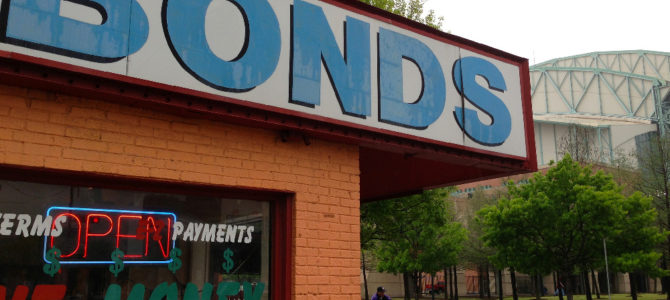
Last month, senators Rand Paul (R-KY) and Kamala Harris (D-CA) introduced the Pretrial Integrity and Safety Act to encourage states to reform their bail systems. Beyond shrinking our overly expanded incarcerated population, bail reform would boost the United States’ stagnating income mobility by reforming a system that traps the poor in poverty.
Upward mobility has stalled. According to Stanford Professor of Economics Raj Chetty, “social mobility is low and has been for at least thirty or forty years.” Of those born into the bottom income quintile, more than a third remain there as adults. However, progressives who blame the free market misdiagnose the problem. A 50-state analysis found that in more economically free states—those with fewer labor regulations and smaller governments—the wealth of the poor rises more quickly than the wealth of the rich, because freer markets produce more opportunity for everyone. The problem is that government policies like steep bail hamstring low-income individuals’ efforts to advance.
When low-income Americans can’t pay their bail, they go to jail. According to the Prison Policy Initiative, of the 646,000 people in local jails, 70 percent have not yet been convicted of a crime. Most are awaiting their trial. In 2002, those jailed had a median income of $15,109 prior to incarceration. Many inmates are there due to low-level crimes, like not paying a traffic ticket or driving without a license.
Jail Time Is a Huge Economic Hurdle
Being jailed reduces earnings. Jailed individuals often lose their jobs when they don’t show up to work the next day. Many individuals even plead guilty to crimes they didn’t commit in order to avoid the weeks or months of jail time associated with a bail they can’t afford. The Journal of Legal Studies found that when judges assigned a money bail, suspects were 12 percent more likely to be convicted, in part because they were more likely to plead guilty to avoid jail and in part because they had less access to their public defenders.
This can have profound future implications, as many employers are leery of hiring people with a criminal record. Jailed individuals are even likely to become repeat criminals: the same study found that pretrial detention caused a 6-9 percent increase in recidivism.
These factors add up to lower earnings: a Pew study found incarceration reduced individuals’ yearly earnings by 40 percent. Formerly incarcerated Americans are hit even harder over the course of a lifetime: according to the same study, “By age 48, the typical former inmate will have earned $179,000 less than if he had never been incarcerated.” This doesn’t factor in the loss of income jailed individuals suffer while waiting for their trial. When individuals are prevented from working and pushed into scenarios that encourage recidivism, they’re less able to escape poverty.
Jail hurts poor people twice: once by depriving them of income behind bars and once by stigmatizing them once they are free. The end result is less income mobility. Formerly incarcerated men in the bottom earnings quintile were twice as likely to still be there 20 years later, compared to men who were never sent to jail or prison. While part of this is due to the fact that incarcerated individuals are more likely to be frequent criminals, part is due to the negative effects of even one jail stretch.
Jail Time Hurts People Who Aren’t Criminals, Too
Jail time also hurts the children of the incarcerated, creating inter-generational poverty. According to a meta-study on the subject, children with incarcerated parents are three times more likely to end up incarcerated themselves. Having an incarcerated parent can leave children with psychological scars such as depression, and can even aggravate learning disabilities.
Even when individuals can make bail and remain free until trial, they often require a bail bond to do so. A bail bond is a payment an insurance company makes on the accused’s behalf, but these companies often charge a payment of 10 percent of bail. The average bail for a felony is $10,000, and even misdemeanors often have four-figure bail amounts. Bail bonds often amount to a substantial fine that the working poor are ill-equipped to pay.
Even individuals who can pull together the money for bail on their own may find that it wipes out their savings. While bail money is refunded at trial, going without thousands of dollars for several weeks can leave people, especially poor people, in danger of financial ruin.
Economic mobility is relatively strong for non-incarcerated individuals. Pew notes that 15 percent of never-incarcerated Americans who start in the bottom economic quintile end up in the top quintile. Our bail systems force poor individuals to choose between unfeasible short-term fees that can spell financial ruin, or the long-term earning potential loss that comes with jail time. For these people, upward mobility is a broken promise.









